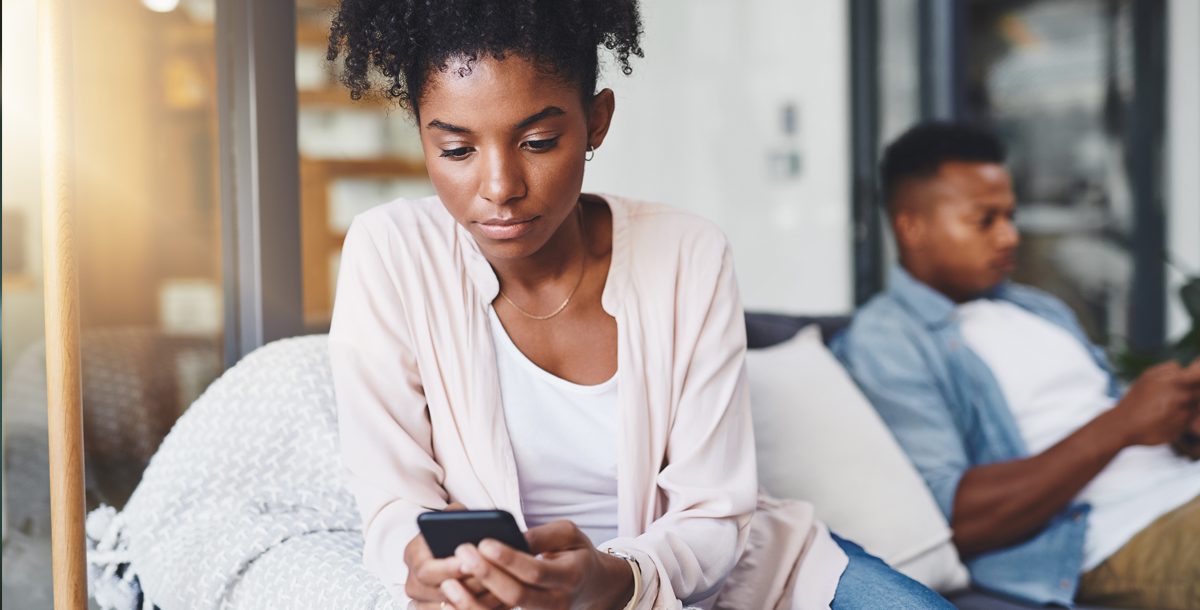“You don’t want to surround yourself in a virtual village of negativity” says Crystal Williams, PsyD. Does social media affect our mental health? Hear from Crystal Williams, PsyD, to learn how to use social media in a healthy way.
Is social media affecting your mental health?
The pros and cons of social media are a hot topic of discussion. Social media can help noble causes gain awareness and connect us with old friends who have fallen out of touch. It is also blamed for creating feelings of jealousy and stealing focus from our in-person relationships.
One thing is for sure: Social media is widely used. Seventy-nine percent of Americans have a social media profile. This makes it important to understand how social media affects our mental health.
Is there a link? The short answer: yes, but there is still a lot to learn. Crystal Williams, PsyD, clinical psychologist and behavioral health consultant at Mercy Health, says research on how social media affects mental health is still in the beginning phases, but some correlations have been found. “However, it’s hard to prove causation. Did the use of social media cause someone to have negative feelings, or did the negative feelings cause them to use social media more?”
As we continue to learn more about the effects of social media, we can take steps to use it in healthier ways. “Social media is just a tool. It’s how we use it that matters.” Here are some of Dr. Williams’ recommendations on how we can use social media more mindfully.
Aim to be below average
While this may sound strange, it provides a good rule of thumb for setting boundaries with your social media use. For example, Internet users spend an average of two hours and 22 minutes on social media every day. So you could aim to use social media less than two hours a day.
The number of social media platforms you use also has a link to mental health—more platforms, more problems. “People who use seven or more social media platforms are three times more likely to have symptoms of anxiety,” says Dr. Williams. “Using two platforms seems to be the sweet spot, so I’d recommend using two or less.”
What about a total social media detox? “That’s applying stress management to it. If you’ve got a feed on social media that’s stressful, and you remove it, a detox probably will have positive benefits. From a stress management perspective, it could help based on the individual’s relationship with social media, feeds they follow, etc.”
Prioritize the positive
Social media can be a tool to build positive relationships. There is no doubt that it helps us connect with people we may not see otherwise. “The key is the relationship, not the social media itself,” says Dr. Williams.
However, it can also connect us with relationships that have a negative effect, so we should be selective. “You want minimal toxic contact, just like in real life. You don’t want to surround yourself in a virtual village of negativity.” Negativity can be obvious or subtle, so pay attention to how your social media feed affects your mood. For example, because social media only presents a limited—and often disproportionately positive—picture of people’s lives, comparison and jealousy can set in. Consider how each person contributes (or doesn’t contribute) to positivity in your life when curating your online community.
Sleep on it
It’s easy to crawl in bed and grab your smartphone to browse social media before falling asleep. However, that habit may not be as relaxing as you think. “Patients often tell me they use their phones to unwind, but it actually disrupts their sleep,” says Dr. Williams.
While scrolling through your feed may make you feel more relaxed, the blue light from the phone is interrupting melatonin production, sending your brain messages to stay alert. “I recommend you stop using your phone 2-3 hours before bedtime.” Other natural ways to improve your sleep include taking a bath, reading a book to unwind and avoiding heavy meals right before bedtime.
Know that it’s personal
“We know using social media affects people differently, and it depends on preexisting conditions and personality styles,” says Dr. Williams. For example, “if you have self-esteem issues already and you’re vulnerable, you should limit use of social media.”
Because the effect on each individual is personal, Dr. Williams recommends talking to a health care professional. While some anxiety can be normal, you might want to see your doctor if you feel like you’re worrying too much to the point that it interferes with your work and relationships. Other reasons to speak with your doctor include feelings of depression, irritability, problems with drugs or drinking, or other mental health concerns. You can always start with your primary care provider, who might refer you or treat you in tandem with a behavioral health consultant, depending on your unique situation. You can also seek help directly from a behavioral health professional. To find a provider, visit our search tool.
If you have suicidal thoughts or behaviors, please seek emergency treatment immediately.






